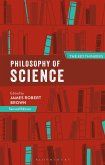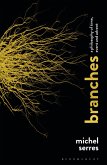From the 19th century the philosophy of science has been shaped by a group of influential figures. Who were they? Why do they matter? This introduction brings to life the most influential thinkers in the philosophy of science, uncovering how the field has developed over the last 200 years.
Taking up the subject from the time when some philosophers began to think of themselves not just as philosophers but as philosophers of science, a team of leading contemporary philosophers explain, criticize and honour the giants. Now updated and revised throughout, the second edition includes:
· Easy-to-follow overviews of pivotal thinkers including John Stuart Mill, Rudolf Carnap, Thomas Kuhn, Karl Popper, and many more
· Coverage of central issues such as experience and necessity, logical empiricism, falsifiability, paradigms, the sociology of science, realism, and feminist critiques
· An afterword looking ahead to emerging research trends
· Study questions and further reading lists at the end of each chapter
Philosophy of Science: The Key Thinkers demonstrates how the ideas and arguments of these figures laid the foundations of our understanding of modern science.
Hinweis: Dieser Artikel kann nur an eine deutsche Lieferadresse ausgeliefert werden.
Taking up the subject from the time when some philosophers began to think of themselves not just as philosophers but as philosophers of science, a team of leading contemporary philosophers explain, criticize and honour the giants. Now updated and revised throughout, the second edition includes:
· Easy-to-follow overviews of pivotal thinkers including John Stuart Mill, Rudolf Carnap, Thomas Kuhn, Karl Popper, and many more
· Coverage of central issues such as experience and necessity, logical empiricism, falsifiability, paradigms, the sociology of science, realism, and feminist critiques
· An afterword looking ahead to emerging research trends
· Study questions and further reading lists at the end of each chapter
Philosophy of Science: The Key Thinkers demonstrates how the ideas and arguments of these figures laid the foundations of our understanding of modern science.
Hinweis: Dieser Artikel kann nur an eine deutsche Lieferadresse ausgeliefert werden.









